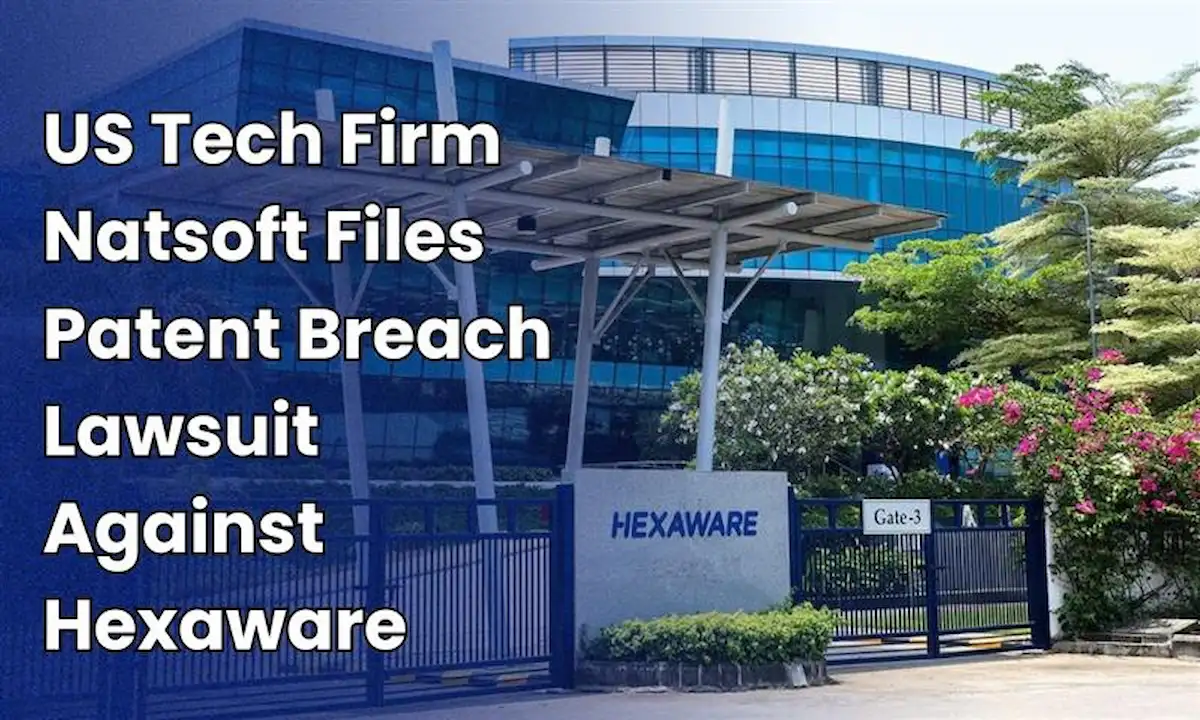
Hexaware Technologies, a leading Indian IT services company, is facing a massive $500 million lawsuit filed by US-based Natsoft Corporation and its subsidiary Updraft. Natsoft vs Hexaware patent case The case revolves around alleged contract violations and patent infringement, making it one of the biggest intellectual property rights (IPR) disputes in the IT sector. This legal battle highlights how technology and innovation have become central to modern business conflicts, where even minor lapses or overlaps can trigger major disputes. With its scale and implications, this lawsuit carries more weight than most cases. And if you want to understand the full details of this case, keep reading.
What is the Background of the $500 Million Natsoft vs Hexaware Patent case?
To better understand this case, it is important to look at its background and how the dispute began. The conflict between Natsoft Corporation (and its subsidiary Updraft) and Hexaware Technologies centers on allegations of patent infringement and breach of contract. Updraft, now acquired by Natsoft, had invested over $100 million in research and development over several years to create advanced technologies in automated code testing, business-rule extraction, code generation, and legacy modernization—all of which are protected by nine U.S. patents.
During a period of collaboration, Hexaware and Natsoft worked together and shared access to certain technologies. However, Natsoft claims that the dispute originated here, alleging that Hexaware later incorporated similar functions and features into its own platforms—RapidX, Amaze, and Tensai—without proper authorization. This, Natsoft argues, was a direct misuse of its patented technology.
In addition, Natsoft accuses Hexaware of misrepresenting Natsoft and Updraft as official “partners” in marketing materials, which, according to Natsoft, misled clients and unfairly enhanced Hexaware’s credibility in the market. The situation escalated further when Natsoft issued a formal infringement notice on February 24, 2025. While Hexaware denied the allegations, Natsoft contends that Hexaware made only minor, cosmetic changes and continued using the disputed technologies, thereby intensifying the conflict that ultimately led to the lawsuit.
When Did Natsoft File Its $500 Million Lawsuit Against Hexaware and What Are They Demanding?
In Natsoft vs Hexaware Patent case, Natsoft Corporation, along with its subsidiary Updraft, filed its lawsuit against Hexaware Technologies on September 23, 2025, in the U.S. The filing included a demand for a jury trial and named both Hexaware Technologies Limited and its U.S. subsidiary as defendants.
In its complaint, Natsoft accused Hexaware of patent infringement and breach of contract, claiming that the Indian IT company unlawfully used technologies protected under nine U.S. patents. These patents cover areas such as automated code testing, business-rule extraction, code generation, and legacy modernization. Natsoft alleges that Hexaware embedded these technologies into its platforms—RapidX, Amaze, and Tensai—without permission.
- Natsoft is demanding $500 million in damages, a figure that represents lost profits, reasonable royalties, and compensation for the alleged misuse of its intellectual property.
- The company is also seeking enhanced damages of up to three times the base amount if the infringement is proven to be willful.
- In addition, Natsoft has requested injunctive relief, which would prevent Hexaware from continuing to use or market the disputed technologies in the future.
Conclusion
The $500 million lawsuit filed by Natsoft against Hexaware is more than just a legal battle between two IT companies—it is a reminder of how critical intellectual property has become in the global technology industry. With nine U.S. patents at the center of the dispute, the Natsoft vs Hexaware Patent case underscores the value of innovation and the risks companies face when collaborations blur the lines between partnership and competition.
Read Also: How to File for Copyright Registration in India
